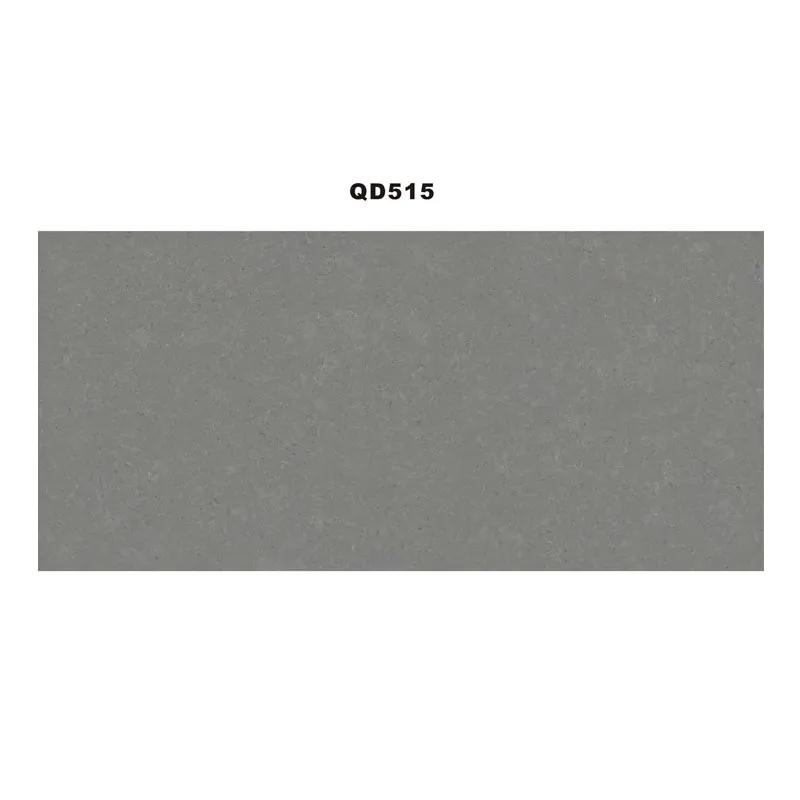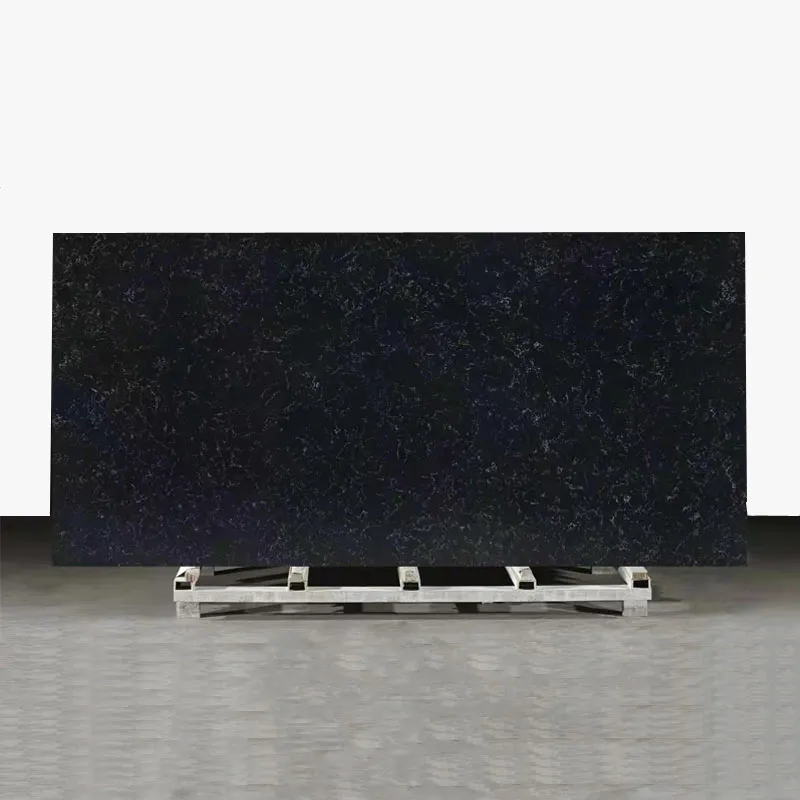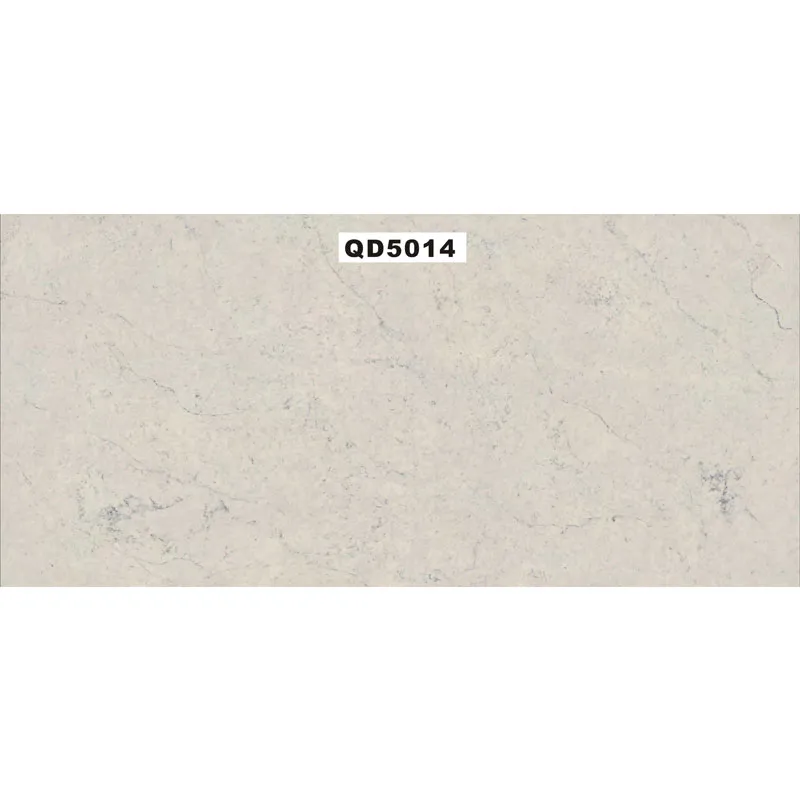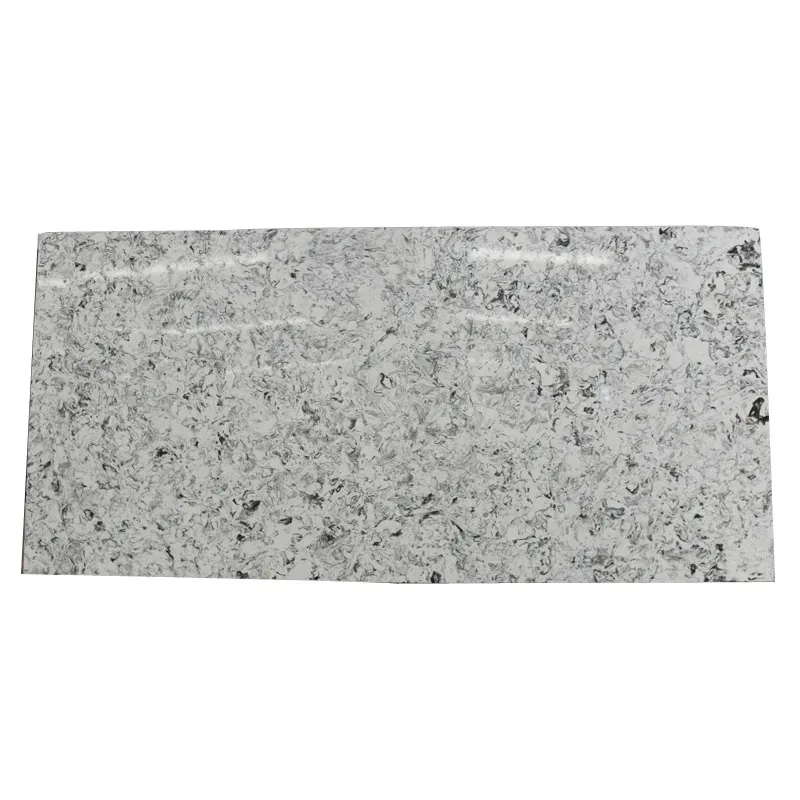When people decorate their kitchens, bathrooms or other indoor spaces, stone countertops are often the material of choice, and are widely loved for their beauty, durability and versatility. Among them, artificial marble stone, as an affordable material that looks similar to natural marble, has increasingly entered people's sight. But many consumers have some questions before choosing, such as: "What does artificial marble look like?" and "Is artificial marble stone easy to stain?"
This article will answer these questions in depth from a professional perspective to help you understand the appearance characteristics of artificial marble stone and its performance in daily use.

What does artificial marble stone look like?
The basic concept of artificial marble stone
First, to understand what artificial marble looks like, we need to understand its basic composition and manufacturing process. Artificial marble stone (also known as composite marble or engineered marble) is an engineering material made from natural marble powder, resin, pigment and other filler materials through industrial processing. Compared with natural marble, its manufacturing process makes the material more consistent in physical properties, and can simulate the texture and appearance of natural marble at a lower cost.
Appearance and texture of artificial marble stone
Artificial marble stone has a variety of colors and textures due to its customizable production process. By adding different pigments and texture elements, manufacturers can design the appearance of artificial marble stone to be almost indistinguishable from natural marble, including the unique texture of marble, natural tonal changes, etc.
1. Color: Artificial marble stone has a very wide range of color options, from pure white, beige, gray to darker black and dark brown, covering almost all the colors of natural marble. Consumers can freely choose the color that matches the home decoration style according to the interior design style. Since artificial marble stone is mixed by adding pigments and tones, the color of the finished product is uniform and stable, and will not produce color differences due to different mineral compositions like natural stone.
2. Texture: Artificial marble stone is also very close to natural marble in texture. During the manufacturing process, through technical means, the mineral texture and complex pattern structure in natural stone can be simulated, such as the "moire" or "water ripple" in marble. These textures give artificial marble the beauty of natural stone, making it very close to real natural marble in visual effect.
3. Gloss and surface treatment: Artificial marble stone is usually polished, and its surface is smooth and has a high gloss. This smooth surface not only increases the beauty, but also makes the countertop easier to clean. Some artificial marble stones can also be made into matte or other textured surfaces to meet the preferences of different users. However, whether it is high gloss or matte treatment, the appearance of artificial marble stone can be customized to ensure that it fits the overall style of the interior design.
Flexibility of shape and size of artificial marble
Another notable feature of artificial marble is its flexibility in shape and size. Because it is artificially manufactured, designers and manufacturers can make artificial marble into various shapes, thicknesses and sizes according to needs to adapt to different scenarios. Whether it is used for large kitchen countertops or washbasins in the bathroom, the production process of artificial marble stone allows a high degree of customization.
In addition, artificial marble stone can also be made into different edge treatment effects according to needs, such as rounded corners, right angles or complex decorative edge designs to increase beauty and practicality.

Is artificial marble stone easy to dye?
After understanding the appearance characteristics of artificial marble stone, another frequently asked question is: "Is artificial marble stone easy to stain?" This question is closely related to the surface treatment, material characteristics and performance of artificial marble stone in daily use. We will analyze this issue in detail from multiple angles.
Surface properties of artificial marble
The surface of artificial marble is usually polished to form a smooth and dense outer layer. This surface layer has good anti-fouling and anti-penetration capabilities in the early stage, which can effectively prevent the penetration of liquids or dyes. Therefore, the newly installed artificial marble stone countertops are not easy to be stained in the short term.
However, surface smoothness and density are only the first line of defense against staining. If it is not properly protected in daily use, the surface layer may gradually wear or scratch, resulting in a decrease in its anti-fouling performance, and stains or staining substances are more likely to penetrate into the matrix below the surface layer.
Resin composition and staining issues of artificial marble
Artificial marble stone is a mixture of natural marble powder and resin, among which resin is a very critical component. The main role of resin in the material is to act as a binder to solidify the marble powder and give the material a certain degree of stain resistance and impermeability. However, resin is essentially a polymer material. Although it has the characteristics of waterproof and stain resistance in the early stage, it is still inferior to natural stone in terms of chemical corrosion resistance and stain resistance.
Some liquids such as coffee, red wine, juice, oil, etc., especially colored liquids, if they remain on the surface for a long time, may gradually penetrate into the resin layer and cause permanent staining. Once staining occurs, it may become quite difficult to remove these stains, and even professional cleaning products or technical treatments may be required to restore the original appearance.
Risk of staining in daily use
Although the surface of artificial marble stone has a certain degree of stain resistance, the risk of staining still exists in the daily kitchen or bathroom environment. The following are some common staining scenarios:
● Grease and food staining: Grease, condiments (such as soy sauce, ketchup), coffee and red wine in the kitchen are common substances that may cause staining. If not cleaned in time, these colored liquids may remain on the countertop and penetrate into the surface layer of artificial marble stone, resulting in stains that are difficult to remove.
● Cosmetics and skin care products: In the bathroom environment, common cosmetics, skin care products (such as nail polish, hair dye) and other substances may also cause staining to artificial marble stone. The chemical ingredients in these products can easily penetrate the surface, especially when there are tiny scratches or abrasions on the surface of artificial marble stone, which is more likely to cause staining.
● Use of cleaning products: Sometimes, some strong detergents or cleaning products with bleaching ingredients may also affect the surface of artificial marble stone, causing local color changes or staining. Therefore, in the daily cleaning process, it is recommended to use mild cleaning products and avoid strong acid or strong alkaline cleaners.

How to prevent artificial marble stone from staining?
Although artificial marble stone may be prone to staining under certain conditions, the risk of staining can still be effectively reduced through proper maintenance and preventive measures.
1. Regular cleaning and maintenance: Keeping the artificial marble countertop clean is the key to preventing staining. Liquids spilled on the countertop should be removed in time, especially colored liquids. Wipe the countertop every day with mild soapy water or a cleaner designed specifically for stone to prevent stains from staying for a long time.
2. Use protective sealant: Although most artificial marble products have undergone preliminary surface treatment when they leave the factory, the surface anti-fouling performance may weaken after long-term use. For this reason, you can apply a layer of protective sealant to the artificial marble countertop regularly. This sealant can fill the tiny pores on the surface, enhance the anti-fouling ability, and thus reduce the risk of staining.
3. Avoid using strong chemical cleaners: Strong acid and strong alkaline cleaners will corrode the surface of artificial marble stone, causing the surface gloss to decrease and increasing the risk of staining. Neutral detergents should be used for daily cleaning, and cleaning products containing bleach or abrasive particles should be avoided.

Foshan Rongguan Glass Material for Building Co., Ltd. (Rongguan) has set a benchmark in the building materials industry with its innovative products and unparalleled quality. Our offerings include quartz stone countertops, terrazzo flooring, artificial marble, and exquisite Roman clay roof tiles, all designed to meet the needs of modern construction projects. Equipped with over 10 advanced production lines, our Foshan-based factory ensures high output and stringent quality control, certified by ISO9001:2015. Whether you’re a distributor, contractor, or wholesaler, Rongguan provides competitive prices, bulk order discounts, and personalized solutions. Contact us today to explore our wide product range and special promotional deals.

